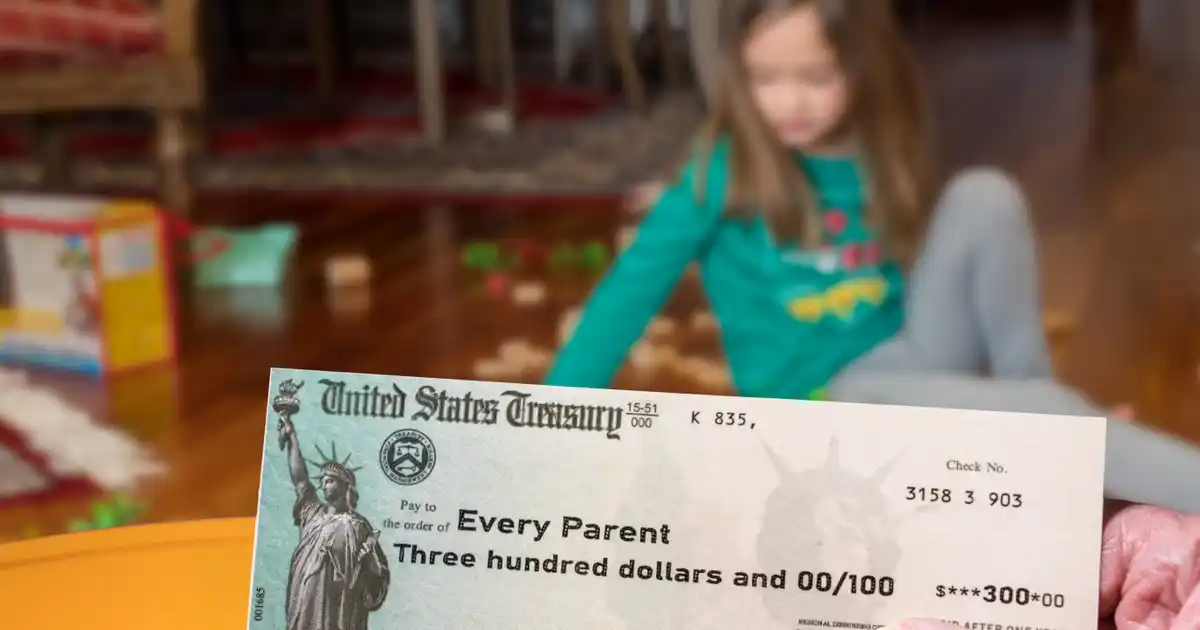Millions of American families received a child tax credit payment for 2021. However, that same payment isn’t exactly guaranteed in 2022. There are plenty of plans to modify the program, all currently being debated by Congress. President Biden’s $2 trillion Build Back Better social spending bill would have continued the the Child Tax Credit through 2022. Not only that, it would have modified it to include the following:
- An increase in the maximum credit that households can claim, up to $3,600 per child age five or younger and $3,000 per child ages six to 17.
- Making the credit fully refundable.
- Distributing families’ eligible credit through monthly checks for all of 2022.
Whether these changes actually happen… well, it remains to be seen. Here’s where things stand, for now, when it comes to the Child Tax Credit in 2022.
How The Child Tax Credit Works
The Child Tax Credit is an annual tax credit available to taxpayers with qualifying dependent children. To claim the credit, you must be eligible and meet the criteria established under the U.S. tax code.
Eligible parents can claim a $5,000 check divided into two parts. The first part is $3,600, which is part of the expanded child tax credit. The second part is a stimulus check of $1,400 for each dependent child. Some of these payments could come in the form of a monthly deposit directly from the government.
 Shutterstock
ShutterstockWho Qualifies For The Child Tax Credit?
To qualify for the child tax credit, you need to have supported the child for at least half of the previous tax year. Additionally, the child needs to have lived with you for at least six months of the previous year.
The Child Tax Credit is not claimable at every income level. You cannot claim it at all if your (single parent) income is over $200,000. If you’re filing jointly with a spouse, you cannot claim this credit if your combined income exceeds $400,000. You may also have to show proof that the child was born before the end of 2021, for brand new claims.
Reverting To The Old Child Tax Credit
The Child Tax Credit in 2022 isn’t going away, per se. However, if Congress doesn’t approve President Biden’s proposed modifications as part of the Build Back Better plan, the program will revert to its original form. Unfortunately, the previous version is much less generous to American families.
If the Child Tax Credit program ends up reverting back to the previous guidelines, it would mean the following:
- A $2,000 credit per dependent child under the age of 17.
- Income thresholds of $400,000 for married couples and $200,000 for all other filers (single taxpayers and heads of households).
- A 70% partial refundability affecting individuals whose tax bill falls below the credit amount.
 Shutterstock
ShutterstockThe Situation in Congress
Congress is currently debating a whole host of Build Back Better inclusions. One of those debates is whether to extend the $1,000 (or $1,600) top up amount tied to the Child Tax Credit. This was previously added in 2020 when the pandemic hit. Politicians are also debating whether to continue sending eligible families monthly checks in advance.
President Biden’s proposed modifications to the Child Tax Credit are included in his massive Build Back Better social program. While the legislation has passed the House of Representatives, it faces termination in the Senate without broader support. Political experts seem to believe the bill, in its current form, will ultimately fail.
Should the Build Back Better bill die on the Senate floor, American families will go back to the less generous form of the Child Tax Credit. It’s possible that the proposed changes Child Tax Credit changes could get still passed, as a separate piece of legislation. On the other hand, those changes might come too late to impact your 2021 tax return.
Impact On Taxes
In terms of filing tax returns, eligible households will be able to claim the remaining half of the child tax credit when they file their 2021 taxes. However, how much that expansion impacts you really depends on whether you opted out of receiving the six-monthly advance credits. It also depends on whether you were eligible for the expanded credit, based on your 2021 income.
Let’s say you received the monthly credit and were also eligible for the full expansion. You’ll probably notice that you’re not getting as large of a Child Tax Credit on your tax return. However, that’s only because you already received half of the amount in advance. Advance payments? If this is a new wrinkle to you, let us explain.
 Shutterstock
ShutterstockAdvance Payments
The Child Tax Credit for 2021 introduced a new feature: advance payments. Taxpayers could receive direct advance payments of their Child Tax Credits, in amounts of $250 or $300 per qualifying child (depending on their age). The payments were monthly.
The U.S. Treasury distributed payments beginning in July 2021. The advance payment program enabled eligible taxpayers to use their benefits during the actual year they would be claimed. This was an entirely new feature, never used before. Some parents loved the extra financial help, instead of having to wait until tax time to recoup their parenting costs.
Payment Amounts
Families who utilized the six-monthly advance payment options can expect to receive $1,800 for each child age five and younger. The amount drops to $1,500 for each child between the ages of six and 17.
On the flip side, eligible households can still expect a sizable credit if they opted out of the advance payments and also qualify for the full amount. That would mean they can claim the full credit when they file their 2021 taxes: $3,600 per child younger than age six, and $3,000 per child between the ages of six and 17.
stock
 Shutterstock
ShutterstockOverpaid Child Tax Credits
Unlike stimulus checks, the Internal Revenue Service (IRS) will reconcile any overpayments. That means if your income improved in 2021, or if you claimed fewer dependents in the tax year than the IRS knew about, you’ll have to settle any overpayments with their 2021 return.
Not all families were eligible for the enhanced portion of the child tax credit. Single filers’ earnings couldn’t top $75,000, heads of households’ incomes couldn’t surpass $112,500, and married couples couldn’t make more than $150,000 to be eligible for the extra amount. After that, the tax break fell by $50 for every $1,000 over the income threshold.
Determining Eligibility
The IRS used the most recent information it has available to determine your family’s eligibility. That was probably your 2020 tax return. However, other proactive families might have updated their income and family information through one of the agency’s online portals ahead of time.
Tax professionals say most families will not have to worry about paying back those payments — whether with their tax refund or out of their own pocket. The Child Tax Credit has pretty high income thresholds for the $2,000 base amount. It also had a buffer that was installed by design.
 Shutterstock
ShutterstockWhat To Do Next
Anyone who received the Child Tax Credit in 2021 can refer to their account on the IRS online portal. It will show them how much they’ve already received. Speaking of which, make sure you submit your 2021 taxes as soon as possible, to avoid any potential delays.
Be aware that the IRS won’t be issuing refunds for the Child Tax Credit until at least mid-February. Despite that, you can get your payments quicker if you do two things. First, file your tax return electronically. Mailed-in paper returns take much longer to process. Secondly, make sure you have direct deposit payments from the IRS (or Federal Government) set up. Following these steps should ensure your Child Tax Credit funds reach you in the quickest possible timeframe — usually within 21 days of filing.
The Bottom Line
After being temporarily enhanced over the past few years, the Child Tax Credit currently runs the risk of returning to its original form in 2022. This could impact the amount of money eligible parents qualify to receive based on their income. It could also change whether the monthly installment payments continue in 2022.
Regardless of what happens with the Child Tax Credit, anyone who received the benefit in 2021 should make it known on their tax return. In most cases, receiving the Child Tax Credit will not adversely impact a tax filing. Those who received the benefit will almost never be required to repay it.








